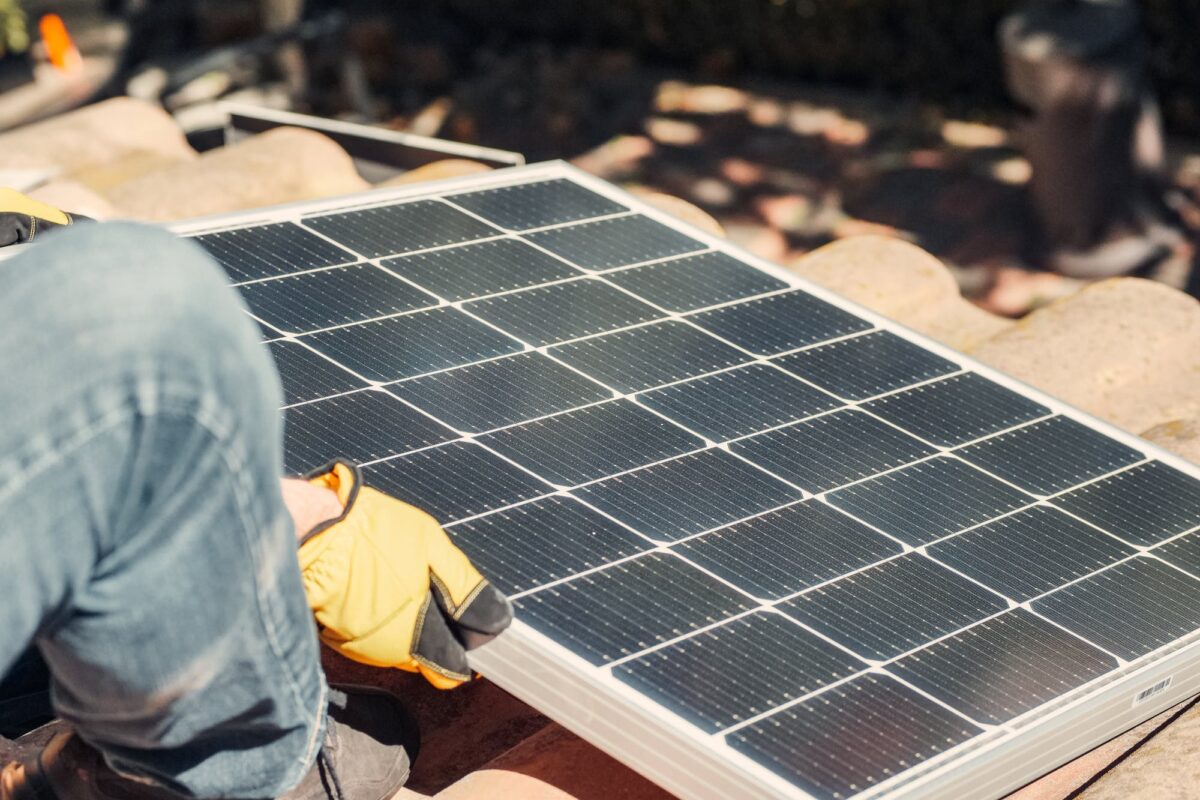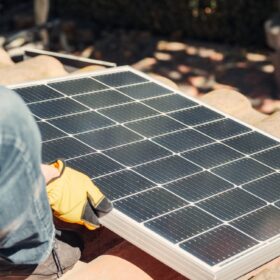By Dick Munson
The solar and wind industries should be worried – very worried. President Trump this month said he was considering a proposal to provide profit guarantees to all coal and nuclear plants within the grid-operated PJM region, putting renewable energy at a distinct disadvantage.
The proposal comes from the subsidy-seeking utility, FirstEnergy, which over the last decade made numerous bad business decisions and tried to force taxpayers or ratepayers to bail them out. This particular plea, however, is more audacious – and dangerous.
Citing Section 202(c) of the Federal Power Act, FirstEnergy is asking the U.S. Department of Energy (DOE) to declare its uneconomic power plants – and more than 80 other generators in the region – “emergency” units that are needed to keep the lights on. 202(c) has been used rarely, typically during times of war or natural disasters when generators are required.
There’s no precedent, let alone legal justification, for suggesting this law should guarantee profits for all the coal and nuclear plants in a region that spans 13 states and D.C. Furthermore, PJM has declared that FirstEnergy’s troubled plants are not needed, and that there’s plenty of capacity, largely from natural-gas-fired turbines and wind farms, to keep the region humming.
Rather than allow market forces to close uneconomic power plants, Trump may direct DOE to pay coal and nuclear units to run, plus give a profit to their utility owners. The cost – a staggering $8 billion annually – means that old and dirty power plants would never have to worry about competition from cleaner, more affordable energy sources like solar, wind, and natural gas.
FirstEnergy’s proposal is similar to one unanimously rejected recently by the Federal Energy Regulatory Commission. This time, however, the utility is trying to go around pesky independent regulators and deploy high-priced lobbyists to approach Trump directly.
Just a week before FirstEnergy introduced its plea, two utility lobbyists dined with the president, presumably pitching the bailout for their clients. These are not just ordinary high-priced lobbyists – one was chief of staff to the energy secretary, and one served as a director of Trump’s presidential campaign. They essentially define the political swamp.
Opponents are numerous, including manufacturers, independent electricity generators, natural-gas companies, conservative free-marketers, and consumers. They understand the obvious – that guaranteed profits for FirstEnergy mean higher costs for everyone else.
These opponents seem to be causing concern within the White House and Department of Energy, forcing the Trump administration to try another legal stretch – using a Korean War-era law designed to ensure a stable power supply during times of war. By speciously using the Defense Production Act of 1950, the Trump administration is attempting to keep struggling coal and nuclear power plants, like FirstEnergy’s, online.
Yet even Republican energy strategist Mike McKenna admits the law is “specifically premised on the idea that this stuff is essential to national security — that we’re going to war. The problem in this instance is that some might think that an approach relying on the act trivializes national security.”
What should be obvious is that distorted markets would make it far harder for solar and wind projects to compete. Trump’s consideration, in fact, poses an existential threat to the burgeoning renewable-energy industry.
For anyone interested in making their voice heard on this threat to America’s competitive electricity markets, the Department of Energy recently launched a new landing page and email address, which it will be using to receive feedback on FirstEnergy’s request. Here’s hoping the president and Energy secretary listen to Americans rather than lobbyists – and that our clean energy progress is not stifled by the political interests of a single company.
Dick Munson is the director of midwest clean energy at Environmental Defense Fund.
The views and opinions expressed in this article are the author’s own, and do not necessarily reflect those held by pv magazine.
This content is protected by copyright and may not be reused. If you want to cooperate with us and would like to reuse some of our content, please contact: editors@pv-magazine.com.








By submitting this form you agree to pv magazine using your data for the purposes of publishing your comment.
Your personal data will only be disclosed or otherwise transmitted to third parties for the purposes of spam filtering or if this is necessary for technical maintenance of the website. Any other transfer to third parties will not take place unless this is justified on the basis of applicable data protection regulations or if pv magazine is legally obliged to do so.
You may revoke this consent at any time with effect for the future, in which case your personal data will be deleted immediately. Otherwise, your data will be deleted if pv magazine has processed your request or the purpose of data storage is fulfilled.
Further information on data privacy can be found in our Data Protection Policy.